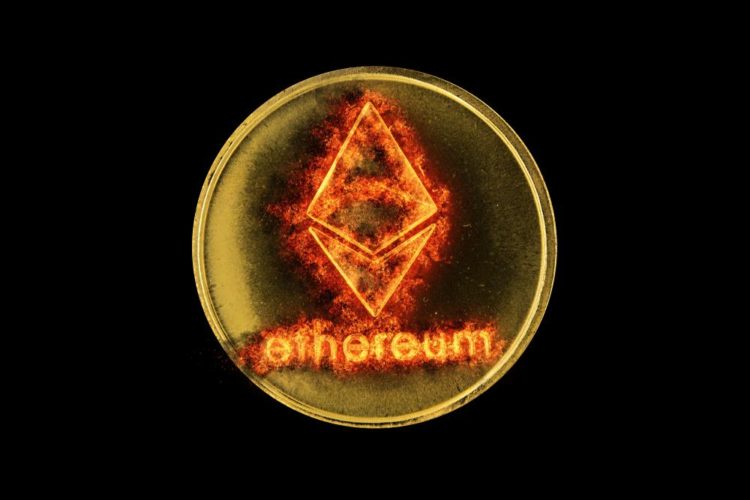- Ethereum creator’s EIP-1559 has sparked opposition from miners, leading them to wage war against him by directing their hash power to an opposing mining pool.
- He has now proposed a quick merge that will upgrade Ethereum to a proof-of-stake network with limited changes to Ethereum clients, with Eth2 hard fork set to come at a future date.
A storm is brewing in the Ethereum ecosystem. In recent weeks, the blockchain network has been sharply divided over a proposed upgrade that could deny miners their core revenue – gas fees. In the latest twist, the network’s creator Vitalik Buterin has proposed an accelerated push towards making Ethereum a proof-of-stake network. Such a move would be the first step towards Ethereum 2.0, coming over a year before the scheduled upgrade date.
At the heart of the contention is Ethereum Improvement Proposal (EIP) 1559. This EIP proposes that the network’s users would send part of their gas fees to the network itself, not the miners. These fees would be burned, essentially reducing the Ether supply and ultimately, pushing up its price. Vitalik, who wrote the Ethereum whitepaper, was one of those who proposed EIP-1559.
Ethereum miners don’t share the same view, however. A group of them have since then organized to move their hash power to Ethermine, a mining pool opposed to the upgrade. As CNF reported, they see it as a ‘show of force.’
Vitalik responds with bold upgrade proposal
Vitalik, and other developers supporting the upgrade, have now responded in an offense move. In an informal document, the developers proposed a “quick merge” that transitions the network into a proof-of-stake consensus mechanism.
Ethereum miners are trying to perform a 51% attack to stop EIP-1559.
In no time, Vitalik Buterin responded with a “quick merge” proposal to escalate the ETH 2.0 merge.
We #SupportEIP1559!https://t.co/LDVEyGtHqA
— Status (@ethstatus) March 12, 2021
“The goal of this document is to describe a mechanism by which a merge can happen quickly, with little modification to either the ethpow or beacon clients,” they state.
Ethereum-based private messaging platform Signal described the EIP-1559 opposition as a possible 51% attack. It further observed that those opposing the upgrade have now far exceeded the required 51% hash power required to coordinate such an attack.
“While this EIP evidently benefits the Ethereum ecosystem at large, some miners believe they can turn things around to keep their exorbitant block rewards by blocking the upgrade altogether,” Status states.
On his proposal for a quick upgrade, Vitalik doesn’t, however, make any mention of a possible 51% attack. Rather, he describes it as a balance attack. Should they coordinate such an attack, they will still lose out in the end, he pointed out.
Miners could do a “balance attack” and mine multiple chains, so there are many choices for what ethpow block to include. But ultimately, as long as there is at least one honest miner, eventually at least one block with totalDifficulty >= TRANSITION_TOTAL_DIFFICULTY gets created.
This merge, if successful, will transition Ethereum into a PoS network, “while leaving the fine-tuning for a future hard fork of ETH 2.0.” As the developers note on their informal document, “the minimal merge will make these things easier to work on, as it would no longer be needed to worry about merging two chains at the same time.”
What now for EIP-1559?
The stalemate between the developers and the miners is unlikely to come to an end soon. For the developers, EIP-1559 is the only way to go as it will finally allow Ethereum users to transact for mere pennies as opposed to the very high fees the network currently charges.
Most applications built on Ethereum already support the upgrade. A GitHub repo by Ethereum developers exists, showing the projects that are pro-EIP-1559. They include nearly all the top DeFi projects including Aave, Curve, Kyber, Compound, BadgerDAO and MakerDAO. On Uniswap, the upgrade received 42% support, but the other 58% of the voters abstained from the vote.
The miners are unlikely to yield either. They believe the upgrade would cost them a critical source of revenue. Flexpool, a small mining pool, has been leading the opposition to the upgrade. In a lengthy blog post, the pool described EIP-1559 as “yet another move towards whales securing their bags.”
On the new proposed base fee, Flexpool explained it as, “Instead of giving the waiter a tip, you just burn it in front of him while laughing at him.”
Flexpool has the support of the two biggest Ethereum mining pools – Ethermine and Spark Pool. Combined, the two control over 45% of the network’s hash power. F2Pool, the third-largest pool with 10% hash power, is the most high-profile mining pool supporting the upgrade.
Sparkpool opposes EIP-1559. https://t.co/6pw7QNN2Ug
— SparkPool.eth (@sparkpool_eth) February 25, 2021
Credit: Source link












































































































































